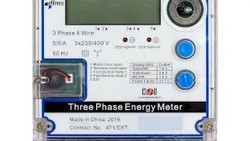Smart meters have become a topic of discussion, with various concerns raised regarding their implementation. In this article, we will address the key concerns raised by individuals, including surveillance, health concerns related to electromagnetic fields (EMF), remote disconnection, measurement accuracy, cost efficiency, technical challenges, security vulnerabilities, and potential impact on plants. By providing insights and information on these concerns, we aim to shed light on the benefits and considerations associated with smart meter technology.
Surveillance
One concern often raised is the potential for surveillance through smart meters. It is important to clarify that smart meters are primarily designed to collect energy consumption data and enable more efficient management of electrical grids. They do not possess capabilities for audio or video surveillance. Smart meters focus on providing accurate data for billing purposes and facilitating better energy management.
Health Concerns and Electromagnetic Fields (EMF)
Smart meters offer different communication options, including radio frequency (RF), powerline communication (PLC) and cellular network communication. PLC allows for data transmission through existing electrical power lines, while cellular network communication involves radio waves similar to mobile phones.
When considering health concerns related to smart meters, it is important to note that the levels of electromagnetic radiation emitted by smart meters are significantly lower than those emitted by everyday devices such as mobile phones or Wi-Fi routers. Smart meters are designed to transmit data using PLC, which eliminates concerns about radio frequency (RF) emissions as communication occurs through the established power infrastructure. This option provides a viable alternative for those worried about wireless communication.
Additionally, smart meters that use cellular network communication emit radio waves at lower power and frequency compared to mobile phones. It is worth mentioning that objections against mobile phones were raised around 30 years ago, when the technology was relatively new. Since then, extensive research has been conducted, and regulatory bodies have established safety limits for RF exposure. The levels of RF radiation emitted by smart meters, even through cellular network communication, are well within these safety limits.
Moreover, it is important to consider the proximity and duration of exposure to electromagnetic fields. While smart meters are installed in the basement of buildings, mobile phones are often held close to the body during usage. The close proximity and prolonged use of mobile phones results in higher exposure compared to the intermittent and infrequent data exchange of smart meters.
Remote Disconnection and Security
Another concern raised is the potential for remote disconnection of electricity by hackers or the occurrence of a blackout due to smart meter vulnerabilities. It is crucial to highlight that smart meters are designed with robust security measures to ensure data integrity and system reliability. Utilities employ encryption techniques and follow industry best practices to protect against cyber threats. Additionally, remote disconnection is typically used as a last resort measure for non-payment, and strict protocols are in place to ensure proper authorization and prevent unauthorized access.
At CLOU, we understand that cyberattacks are a major concern for both meter and system security. That is why we place paramount importance on implementing stringent security measures in accordance with the DLMS (Device Language Message Specification) protocol. This protocol provides a standardized framework for secure communication and data exchange between smart meters and utility systems.
To further enhance security, we provide dedicated training for utilities on the subject of cybersecurity. By equipping them with the necessary knowledge and skills, we empower them to effectively safeguard their systems and mitigate potential risks. Our goal is to ensure that utilities are well-prepared to handle any cybersecurity challenges that may arise.
Additionally, it is essential to note that the security measures implemented in smart metering systems are subject to validation by local governments (e.g. BSI for Germany). As power supply is considered part of critical infrastructure, governments play a crucial role in ensuring that the security measures in place meet the necessary standards. This validation process provides an extra layer of assurance and accountability, ensuring that smart metering systems adhere to the highest security standards.
Measurement Accuracy
Concerns surrounding the accuracy of smart meter measurements have been raised. It is important to note that smart meters undergo rigorous testing and calibration to ensure accurate measurement of energy consumption. Additionally, regulatory bodies establish standards that dictate the accuracy requirements for smart meters, ensuring reliability in billing and energy management.
Cost Efficiency and Environmental Considerations
Some individuals argue that the deployment of smart meters incurs significant costs and question the economic and environmental benefits. While the initial investment in smart meter infrastructure may require substantial resources, the long-term benefits in terms of improved energy management, reduced operational costs, and enhanced grid efficiency outweigh the initial expenditure. Smart meters enable utilities to optimize energy distribution, identify faults, and promote energy conservation.
Technical Challenges and Reliability
Technical challenges are a valid concern when implementing any new technology. However, it is important to recognize that smart meters have undergone extensive testing and are continuously improving. Utilities work closely with manufacturers and experts to address any technical issues promptly. The reliability and performance of smart meters are crucial for their successful deployment, and industry standards ensure that they meet the necessary technical requirements.

Potential Impact on Plants
Concerns about the impact of smart meters on plants have also been raised. To date, there is limited scientific evidence suggesting a direct negative impact of smart meters on plant health. The levels of electromagnetic radiation emitted by smart meters are significantly lower than those from other everyday devices. However, ongoing research and monitoring of potential effects on plant life are important to ensure the continued safety and wellbeing of our environment.
Takeaway
Addressing the concerns surrounding smart meters is crucial to fostering a better understanding of their benefits and potential limitations. By providing accurate information and dispelling misconceptions, we can facilitate informed discussions and decision-making. Smart meters offer significant advantages such as improved energy management, cost efficiency, and a more sustainable energy future. Regulatory bodies, health organizations, and industry experts continue to monitor and address concerns related to surveillance, health effects, security, measurement accuracy, cost efficiency, technical challenges, and potential environmental impact. By considering these factors, we can harness the benefits of smart meters while ensuring the safe and effective implementation of this technology.
At CLOU, we value the input and thoughts of our readers and customers. We welcome your perspectives and encourage you to share your thoughts about smart meters and related topics in the comments section. Your insights and feedback contribute to a more comprehensive understanding of the subject, and we appreciate the opportunity to engage in meaningful discussions with our audience. Together, we can navigate these discussions and embrace the potential of smart meters for a more efficient and sustainable energy landscape.





All comments are moderated before being published. Inappropriate or off-topic comments may not be approved.